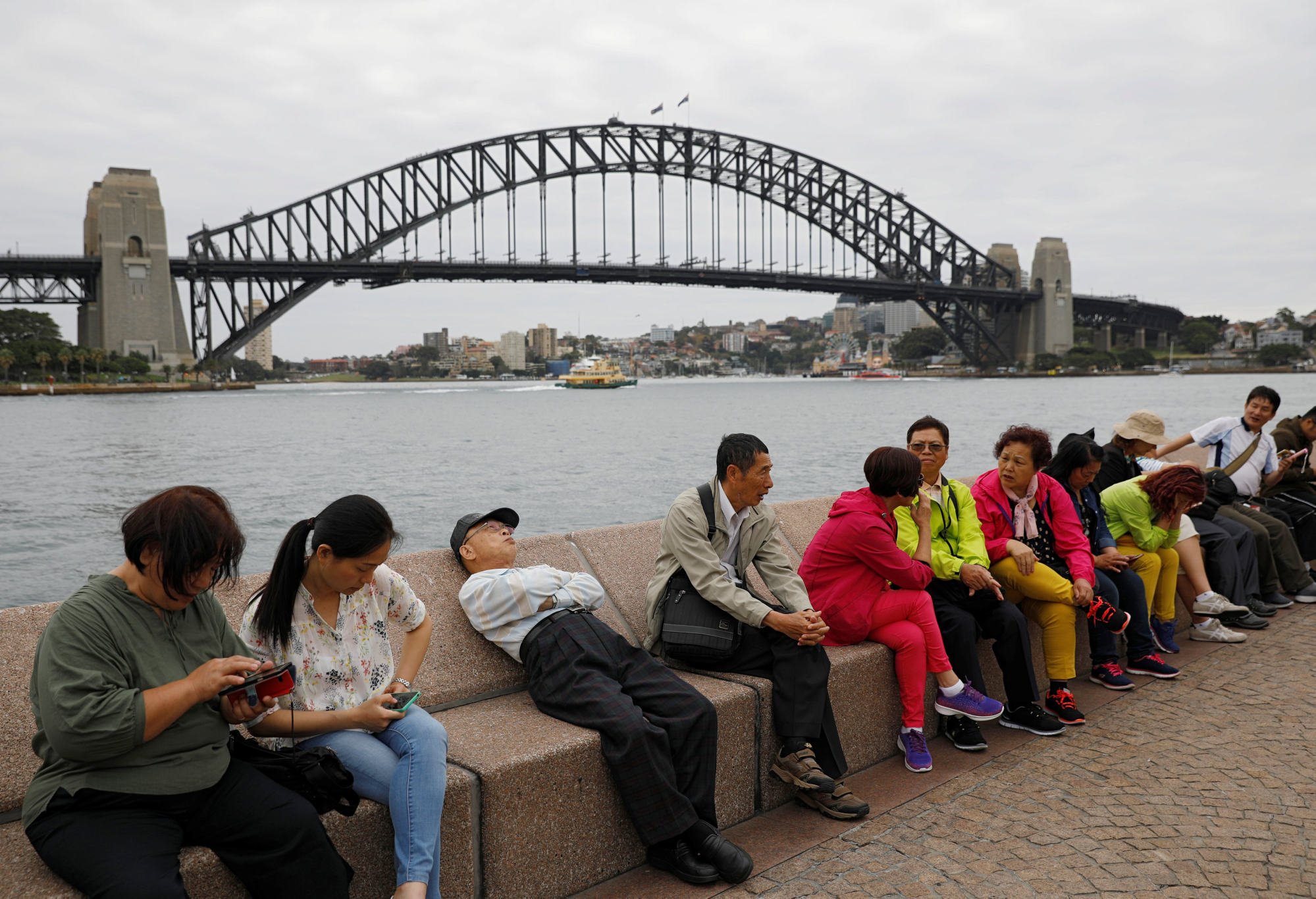- The poll reveals strong public support for the Aukus agreement but Australians are now less clear about how the deal would impact regional security
- Friendlier diplomacy by PM Anthony Albanese’s government has cooled tensions, ended some informal blocks on trade and increased contacts
Perceptions of China have improved in Australia, while more Australians are now against the purchase of nuclear-powered submarines through the Aukus programme, the latest annual public opinion survey by the Sydney-based Lowy Institute has shown.
The findings for this year’s poll revealed a slightly softer stance towards China among Australians compared with last year’s poll amid improving bilateral relations.
While feelings towards China remained lukewarm, fewer Australians surveyed – 52 per cent of the 2,077 Australians polled in March – saw China as a threat. This was an 11-point reduction from last year’s 63 per cent.
More Australians also saw China as an economic partner this year at 44 per cent, compared with 33 per cent last year.

Chinese tourists rest near Sydney Harbour Bridge. Friendlier diplomacy by the government of Australian Prime Minister Anthony Albanese has cooled tensions between Beijing and Canberra. Photo: Reuters
The relationship between the two countries nosedived in 2020 after Canberra pushed for an independent investigation into the origins of the coronavirus, raising Beijing’s ire for being blamed for the pandemic.
But friendlier diplomacy by the government of Prime Minister Anthony Albanese has cooled tensions, ending some of the informal blocks on trade imposed by China and increasing ministerial contact between the two nations.
“There are signs in this survey that negative public opinion towards China may have bottomed out,” said Ryan Neelam, director of the Lowy Institute’s public opinion and foreign policy programme.
“But much depends on what happens next. The ball is in Beijing’s court after a campaign of economic coercion and diplomatic pressure that ultimately damaged China’s own image in Australia.”
Despite the improvement in sentiments over the year, the same proportion of Australians surveyed – three-quarters – still felt that China would be a potential military threat to Australia in the next 20 years.
At the same time, the poll also revealed that fewer Australians, or 46 per cent polled, saw the Aukus security tie-up with the United States and Britain – under which Australia is set to procure nuclear-powered submarines – as a means of making the Asia-Pacific region safer. Last year, that ratio was 49 per cent.
The pact is widely viewed as a counter to China’s ambitions in the region.
About 31 per cent surveyed were against buying nuclear-powered submarines as opposed to 28 per cent last year.
The Aukus submarine deal, which could cost Australian taxpayers around A$368 billion (US$245 billion), was first announced in 2021 and finalised in March, although it won’t be until the 2050s before the fleet of eight submarines is fully delivered.
The Lowy Institute said while the poll revealed strong public support for the submarine agreement, Australians were now less clear about how the deal would affect regional security or whether it was good value for money.
There has also been rising internal discontent within the ruling Labor party over the Aukus deal in recent weeks.
The poll showed a majority of Australians continued to see the alliance between Australia and the US as important, although that ratio fell five points to 82 per cent from a record high of 87 per cent last year.
This year, fewer Australians surveyed – 57 per cent – said they were in favour of allowing the US to base military forces in Australia. Last year, 63 per cent were in support.
About 44 per cent named Japan as “Australia’s best friend in Asia”, followed by 16 per cent for India and 15 per cent for Singapore.
The Lowy Institute said the number of Australians who selected India had more than doubled since last year.
India is a member of the Quad, another security alliance viewed as a means of checking China’s ambitions in the region. The other members are Australia, Japan and the US.
Canberra and New Delhi’s relations have strengthened in recent months, following Albanese’s visit to India in February and Modi’s trip to Sydney last month, when he made a nearly hour-long address to some 20,000 people at a former Olympic stadium.
Source: scmp











